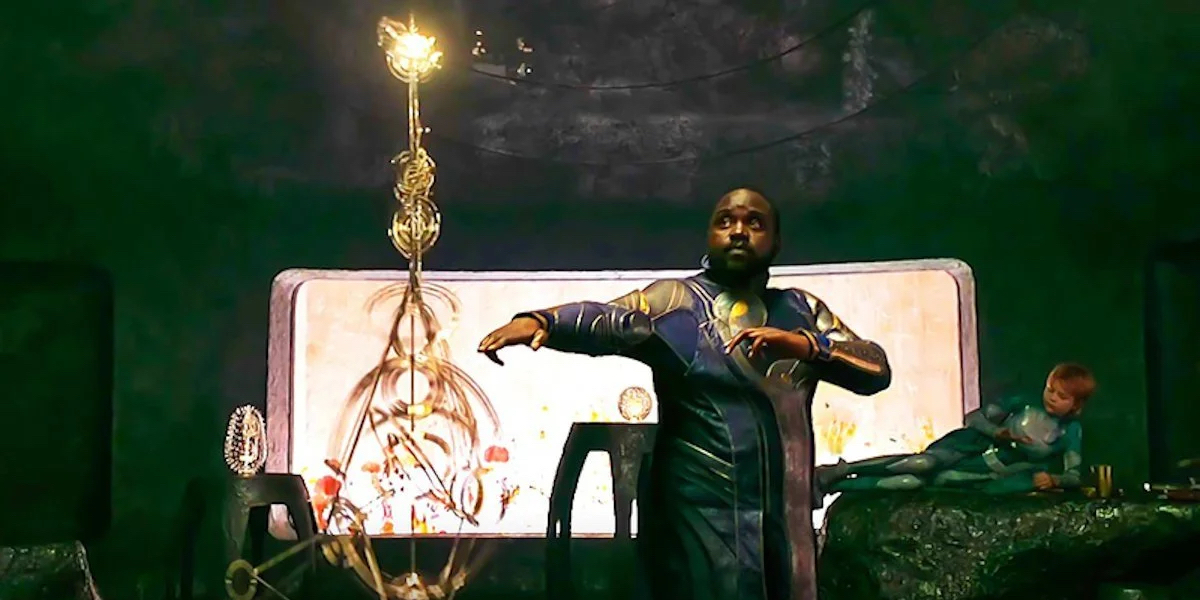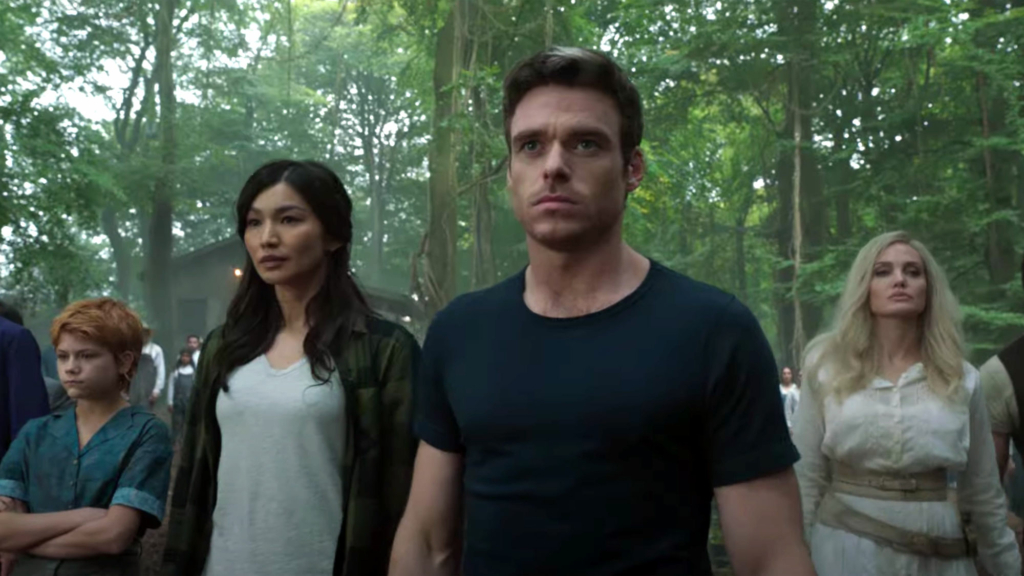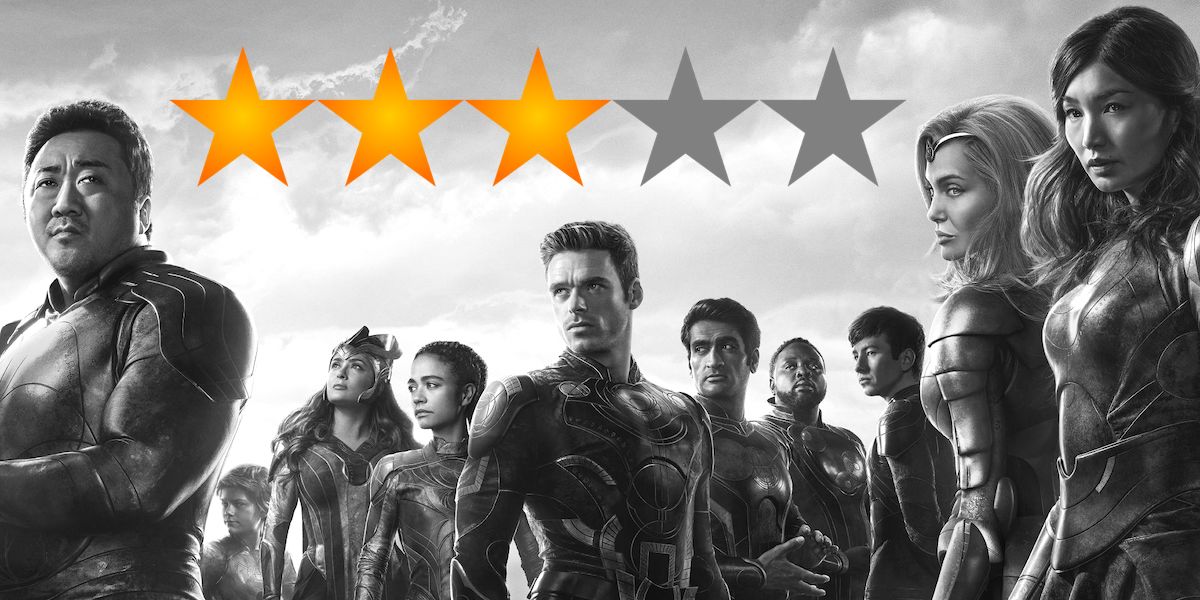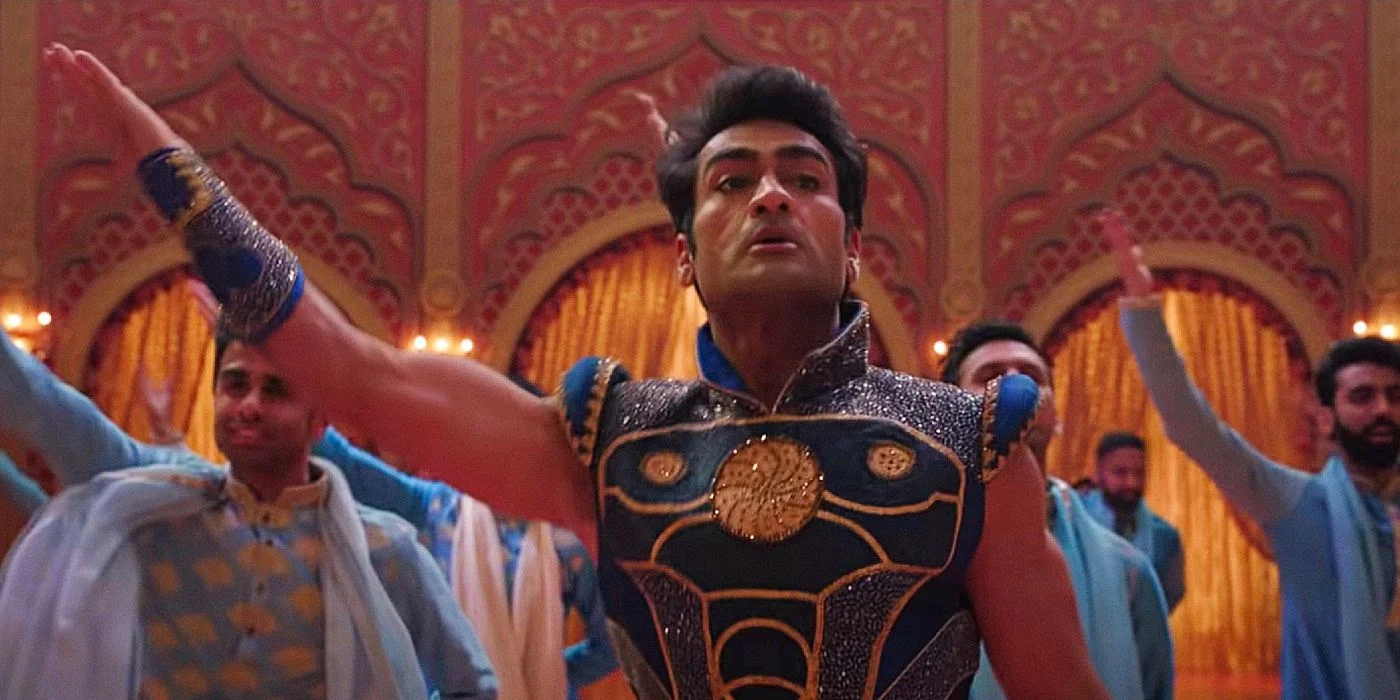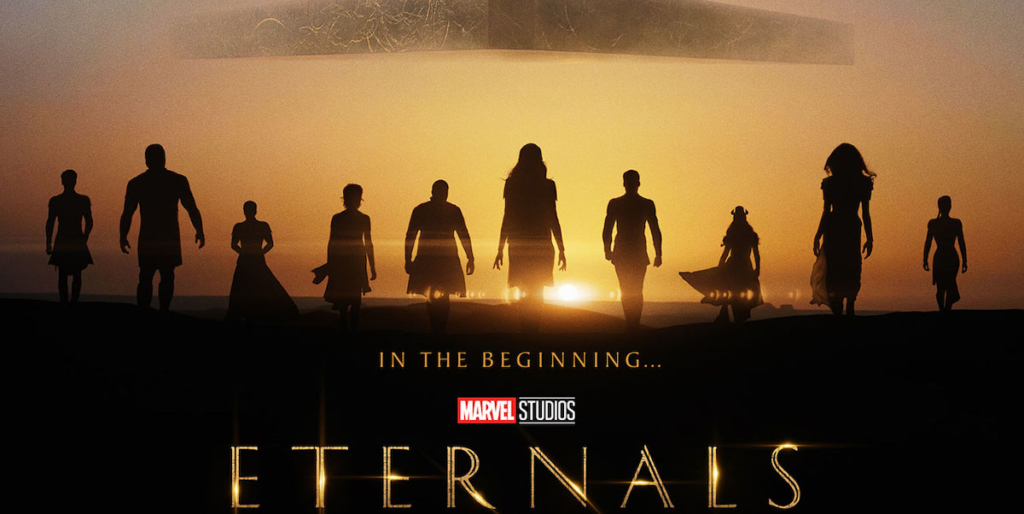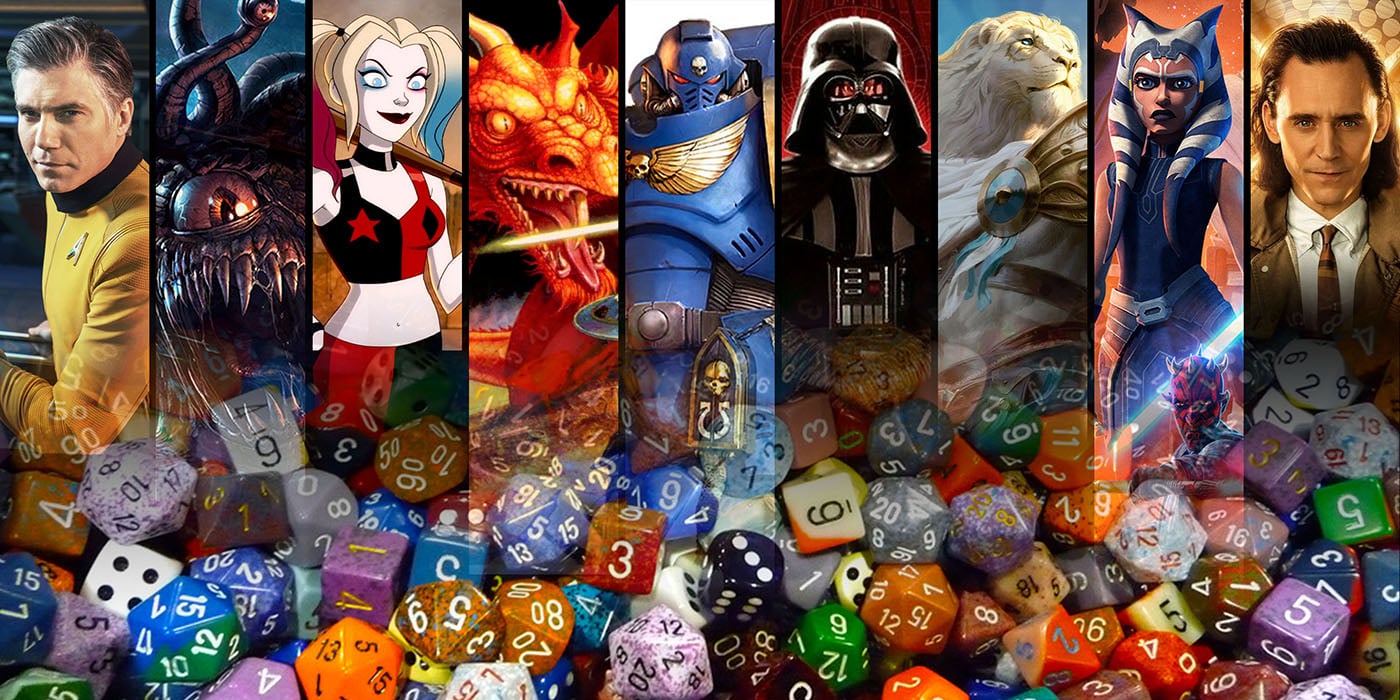What Most Reviewers Missed About ‘The Eternals’– A Truly Spoiler-Free Review
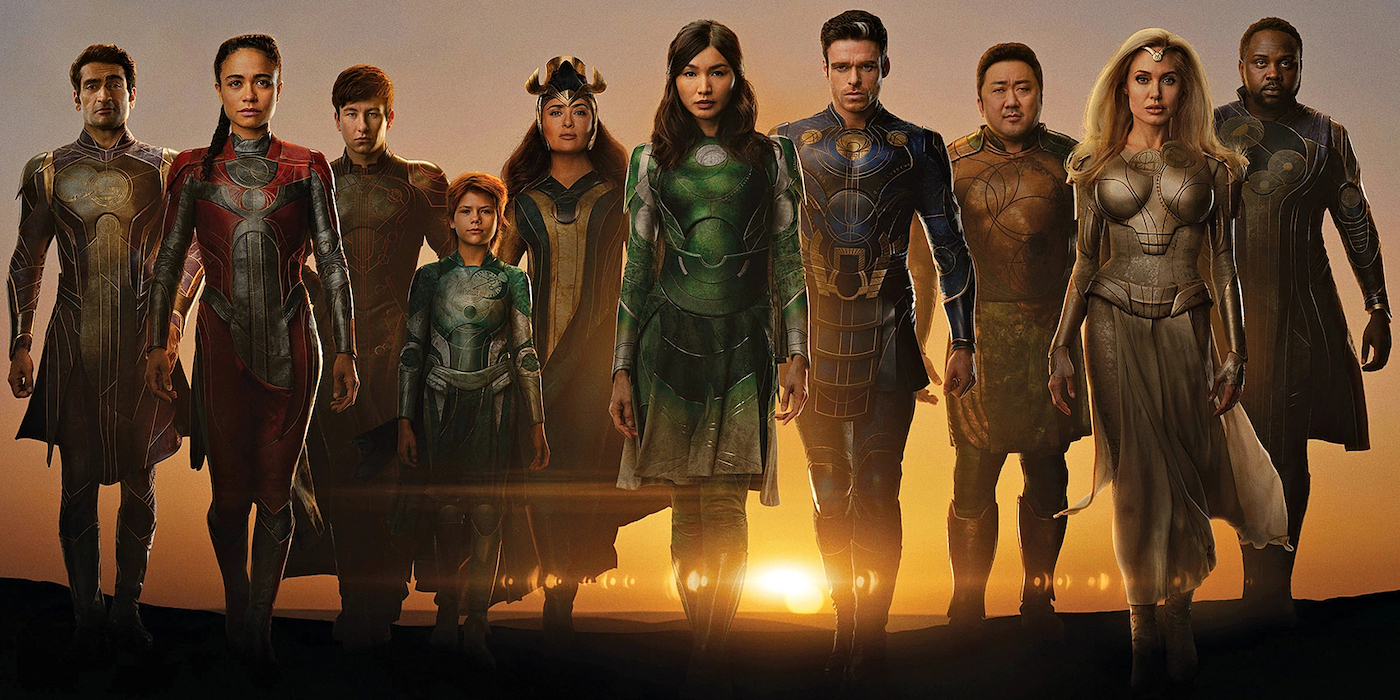

The Eternals strikes outside of the usual MCU mold, and reviewers just don’t get it. Yes, the story is busy– but it breaks a lot of ground.
For better or for worse, all of Marvel’s budget-busting productions follow a formula. The Eternals isn’t the first film in phase 4 to feature a more obscure Marvel hero, but it certainly works outside the mold of MCU stories. And many critics can’t stand to see the studio evolve.
Comic Book Heroes are Eternal
Seasoned comic book fans sometimes find themselves explaining the positive aspects of reboots to movie purists. If superhero stories didn’t reboot, Peter Parker would either be perpetually stuck in the 1960s or over 80 years old. Either way, that’s a boring story. No thank you.
Comic book heroes are a part of modern mythology. Like all myths and fairytales, details and scenes of the stories change to reflect the time in which they’re written. In a world of “there are no original ideas anymore” hot-takes, the wide variety of available stories has removed us from this natural evolution of storytelling.
The Eternals were originally created in the 1970s by superhero royalty Jack Kirby. Kirby’s specialty, other than the famous Kirby Krackle, was expanding both the Marvel and DC universes outside of Earth.
Using the vast storytelling potential of the universe, Jack created a hierarchy of beings responsible for all sentient life in the universe. He’s the MCU’s “God” that created the Celestials, and all the races of beings they gave birth to. That includes the Eternals.
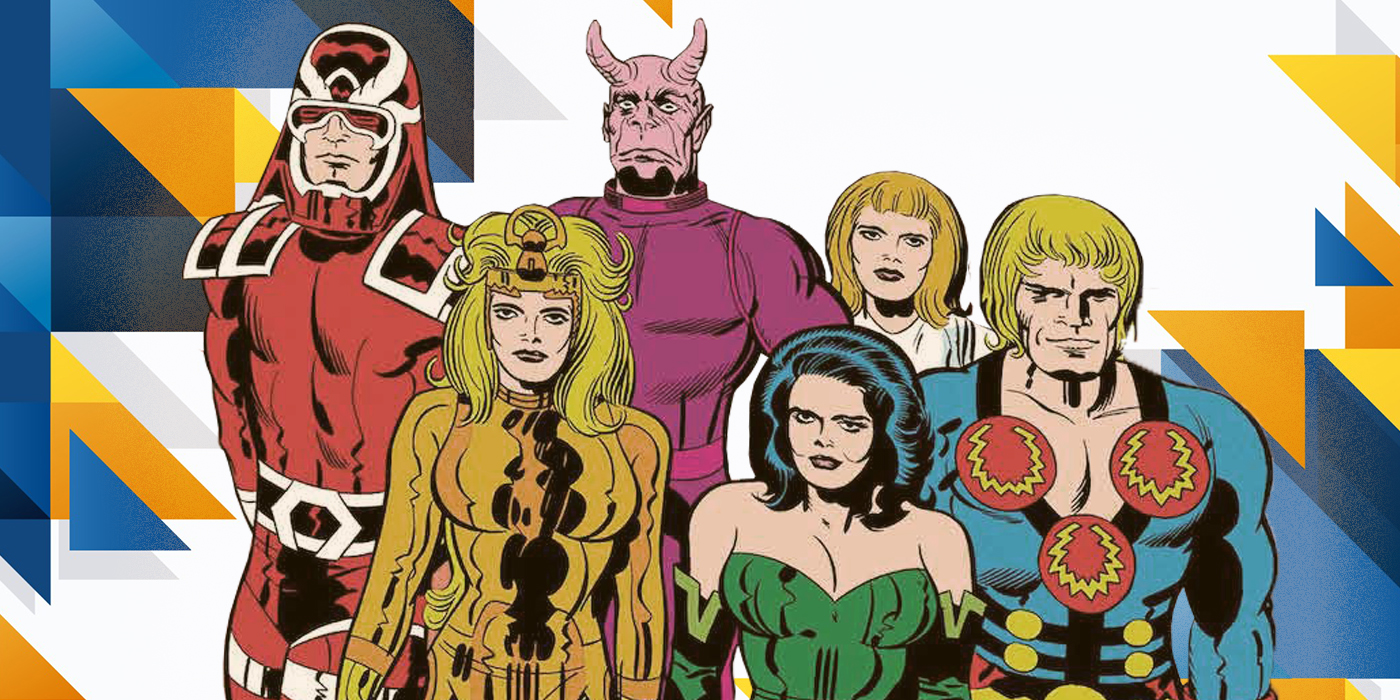
Art by Jack Kirby courtesy of Marvel Comics, background image by Vecteezy
The Eternals From the Krackle to the Big Screen
To bring a 1970s team of super immortals to life, Marvel put together their most diverse film cast yet. One thing that many critics seem to be overlooking is how that impacts the narrative.
The suggestion that humanoid creatures from outer space provided ancient civilizations with the necessary technology to evolve could easily be problematic. But thanks to a multi-racial and ethnic cast of incredibly talented performers, the story has a greater opportunity to explore heavier aspects of human history, like colonization, genocide, and war. And these conversations don’t commandeer the narrative– they’re offered as a part of the story, and you can choose whether or not to engage with them.
Hollywood tends to tell a lot of ancient stories from a white-centric POV. But in this case, old stories (and in the case of Ma Dong-seok’s Gilgamesh, the oldest story) are able to add greater nuance to how we interact with classic myths. Klingo (Kumail Nanjiani) has a Bollywood dance number that fits naturally into the story while still taking audiences on an enjoyable tangent, but he’s a singular character who isn’t just relegated to the role of comedic relief.
Eternal speedster Makkari is played by deaf Walking Dead actress Lauren Ridloff. Her exchanges with other characters using American Sign Language provide great opportunities for fresh dialogue. Her scenes are a joy, and it’s easy for the audience to invest in her character, while appreciating a different language presented by a member of the ASL community.
Of course, the most historical moment in the MCU’s new film is the inclusion of the MCU’s first gay superhero. Phastos (Brian Tyree Henry) is one of the most enjoyable characters in a script that has an overabundance of lovable characters. While the movie wasn’t able to give them all the time they deserved, no MCU movie exists in a vacuum– we are definitely gonna see this guy again.
Too Much or Too Little Marvel?
It seems that critics are either criticizing the film for not being a Marvel movie or being a mythological story that fails because it’s a Marvel movie. This really functions on the premise that Marvel movies have to follow a formula. It glosses over all of the room Eternals gives the studio to evolve. You know, the way Marvel comics have for decades.
The film is long and there’s a lot going on, but I wouldn’t say it’s Marvel’s most complicated movie. If I’m honest, it took me a few watch-throughs of Captain Marvel before I understood exactly how she got her powers. I’m still not sure I could recite it off-the-cuff without checking the MCU wiki.
Let’s not be over-dramatic: the plot is intricate, but the movie doesn’t collapse under the weight of it. Sure, many of the characters don’t get the screen time they deserve (looking at you, Kit Harrington’s Dane Whitman). But it’s clearly intentional. It’s an investment the audience is willing to make in order to enjoy future MCU stories.
Eternals TL;DR
This may be my favorite Marvel movie to date. Come at me, bros.
The natural scenery is beautiful– much of it adds to the story’s focus on the long history of Earth. But this is definitely the most philosophically challenging of the Marvel films. And I get that some fans may not be into that.
But personally, a movie franchise as prolific as the MCU has two choices: evolve or become a cliche. Marvel comics has evolved its content for almost 100 years to stay relevant. Shouldn’t the films do the same?
The studio is reaching into the less populated corners of the comic book universe. There will be growing pains, and this crowded cast is certainly one. But seeing Phase 4 take those chances is a beautiful tribute to comic books as a medium. And it gives fans the opportunity to expand their minds and expectations.
Marvel’s ‘The Eternals’ hits theaters everywhere on November 5th.

